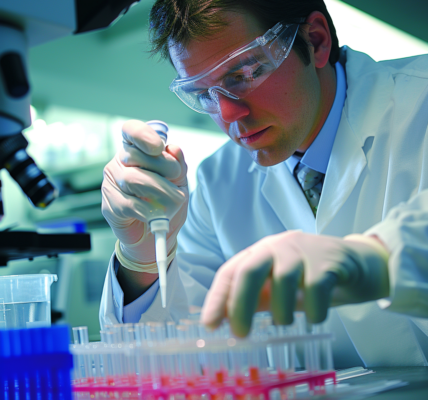In recent developments within the field of genetics, researchers at the University of Texas at Arlington (UTA) have made significant strides in genomic sequencing technology. This advancement is poised to enhance the understanding of genetic information and its implications for various scientific fields, including medicine, agriculture, and environmental science.
The UTA team has been working diligently to improve the efficiency and accuracy of genome sequencing, which is crucial for identifying genetic variations that can lead to diseases or other biological phenomena. Their innovative approach utilizes state-of-the-art sequencers that can process vast amounts of genetic data at unprecedented speeds.
This cutting-edge technology not only accelerates the sequencing process but also reduces costs, making genomic research more accessible to scientists and institutions worldwide. As a result, researchers can now conduct large-scale studies that were previously impractical due to time and financial constraints.
One of the key benefits of this advancement is its potential application in personalized medicine. By understanding an individual’s genetic makeup, healthcare providers can tailor treatments to suit particular genetic profiles, leading to more effective and targeted therapies. This could revolutionize the way diseases are treated, particularly in areas such as oncology, where genetic factors play a critical role in cancer development and treatment response.
Moreover, the implications of improved genomic sequencing extend beyond human health. In agriculture, for instance, genetic research can help in developing crops that are more resilient to diseases and environmental stressors. This is increasingly important as the global population continues to grow, necessitating more efficient food production methods.
Environmental scientists are also poised to benefit from these advancements. By understanding the genetic diversity within ecosystems, researchers can better assess the health of various species and their roles within their habitats. This knowledge is vital for conservation efforts and for maintaining biodiversity in the face of climate change.
As UTA continues to push the boundaries of genetic research, the implications of their work are likely to resonate across multiple disciplines. The integration of advanced sequencing technologies into everyday research practices promises to unlock new opportunities for discovery and innovation.
In addition to the technological advancements, the UTA team emphasizes the importance of collaboration within the scientific community. By partnering with other institutions and researchers, they aim to share knowledge and resources, fostering an environment where groundbreaking discoveries can flourish.
As the field of genetics continues to evolve, the role of institutions like UTA will be crucial in shaping the future of genomic research. With their commitment to innovation and excellence, they are paving the way for a new era of scientific exploration that holds the potential to transform our understanding of life at the molecular level.
Researchers and students alike are encouraged to engage with this cutting-edge work, whether through academic programs, internships, or collaborative projects. The future of genetic research is bright, and the contributions from UTA are set to play a pivotal role in this exciting journey.





